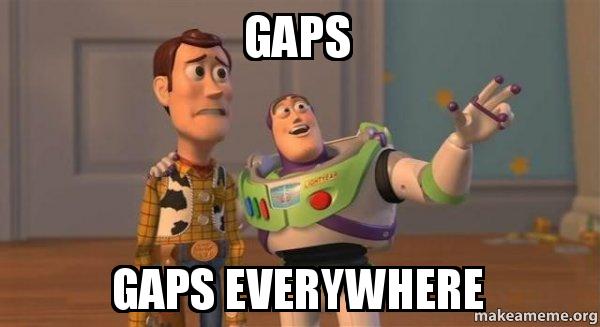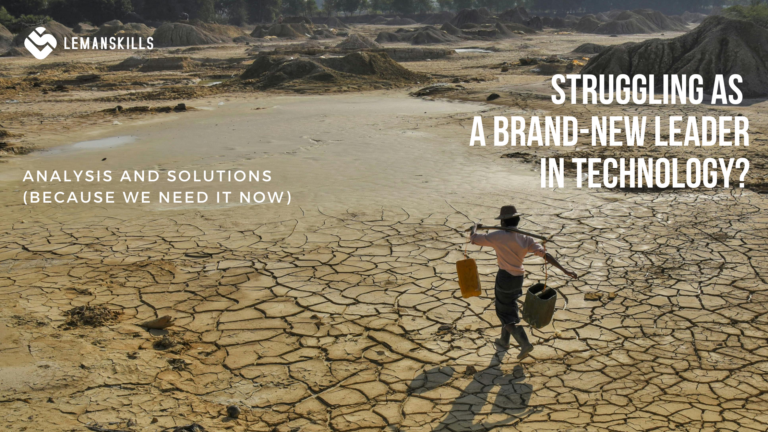How we think about professional and personal development differs from person to person, from country to country and from organization to organization. Strengths or gaps? It is very much cultural, rooted in a country script which says what we should or shouldn’t do as members of a certain society.
Are you living in a country when you need to prove that you are good enough all the time? Or maybe you live in society where children hear from their parents that they are extraordinary, they can achieve whatever they want from the very beginning of their lives? Is there a difference between the people raised and shaped in each of those systems? Of course it is, but it doesn’t mean that we need to stay that way until the day we die.
Basing on what we are really good at instead of focusing on what we can’t do can be a change of thinking paradigm for some of us. Isn’t it right that when we don’t know how to do something, we should participate in a training session, read a book or find a mentor that will teach us? I’m sure that it’s the most natural approach for many people. Is it fun? Does it work every time? Is it worth to invest the time in it? Is the result worth the effort? Let’s see what happens with us in both of these scenarios.
Scenario 1: I constantly fill the gaps
Let me give you an example from my experience as a manager. Once I had an employee who was taking care of the creative part of learning materials that we provided for employees. He was amazing at his job. And once I gave him a task connected to the Excel spreadsheet.
He’d been doing this task all week, gasping all the time and at the end I still had to correct it.
What a manager in that kind of situation can do? I could’ve send him to an Excel training so he will improve his skills, to fill the gap. It would be an intuitive thing to do, since I needed to delegate the task to the team. But what good it would bring?
So I’ve decided to not giving him an Excel task. Like ever. Instead of it I created some automations and the spreadsheet worked on its own. Case solved.
This is my story, but I know a lot of managers that would use the scenario to fill out the gap. Of course there are many different situations, structures and teams. But when we have people with a really little orientation into analytics, doing a great job in the creative area – what is the point in forcing them to constantly focus on what are their weaknesses? How do you feel when you think about how not good enough you are? Regardless of the area of your life. Not a good enough partner/parent/expert/manager/owner/entrepreneur/friend? Let’s be honest – we feel shitty. It’s always this thing in our head that we are not there yet. Always on the journey, never achieving the goal.

And being in that state of mind all the time can be exhausting. Frustrating and demotivating in a longer run. I don’t say that we shouldn’t improve, it’s not a story about it. We should improve, analyze when we can be better but without beating ourselves up all the time for not being perfect.
Scenario 2: I choose to base on my strengths
And here’s another angle.
I had an employee who really liked covering tasks connected to organizing: training sessions, events, meetings, 1:1s etc. She did it a lot and I thought that maybe it’s a little bit too monotonous and repetitive for her after a while. Once we had a quality conversation and I offered her new chunks that she could learn, like facilitation, project management or analyzing data from HR IT tools. And you know what? She didn’t want any of it! She was perfectly fine where she was at the moment, she loved being a logistic wizard, working with many different people in the most efficient way, making their lives better and easier. From her point of view her tasks weren’t monotonous at all – she was taking every training, every event as a new journey.
So I left it like that, checking on a regular basis if something changes. She grew beautifully into an event manager role, being responsible for organizing things for thousands of people all around the world.
What is the conclusion of that story? I might have told her that she needed to broaden her scope, do something new. But I’ve decided to leave her with her decision, watching her growing as a person, extremely satisfied and engaged at what she did every day. She was really good in her job, she learned every day, even when I thought that was not possible, doing the same thigs all over again. But I was wrong and now I know – more than ever, that I’ve made a good decision back then.
Basing on her strengths allowed her to be fulfilled, happy. How many of us can really tell that we feel happy at our jobs, every day? When choosing to base on strengths, talents, preferences, or those things that we just like doing, our life can look like that. No frustration, no wasted time on things that somebody else can do in 5 minutes and we spend the whole day on finding the solution, no feeling “not good enough” again.
Why strengths are so powerful?
That’s why strengths are so powerful. Focusing on what we are really good at, spending time on mastering, connecting the dots with things that are similar to those we already know is a great way to not stay in the same place. To grow all the time. We need to be aware that sometimes there is a point where we are experts in one area and maybe there is nothing more that we can learn.
And when we are hungry, we need more stimuli, new things that our brain can take. I’m not saying that once we are experts, we’re done. Look for other things you can learn, think holistically, connect the dots between areas that seems interesting to you. Strengths give you tools to understand yourself better, getting to know what can be on your to-do list and on your not-to-do list. The second one is equally important as the first one.
We need to know what things we don’t want to do, ever. And it doesn’t mean that we are lazy, unengaged or we resist to learn. It’s quite the opposite in my view. It means that we make a former decision, where we want to put our energy, where to invest it the best possible way. To make the most meaningful impact, on ourselves and/or on others.
You don’t know what your strengths are? You can always start by filling out the questionnaire named Gallup Strengths Finder tool (https://store.gallup.com/p/en-ie/10108/top-5-cliftonstrengths), get a report and know more about yourself. You can always deepen your knowledge about the idea of basing on talents using many materials you can find on Gallup Institute website – it’s a great place to look for additional information, inspirations, stories or tips regarding how to use this idea in practice. You can also always contact myself – I’ll support you in finding what you are really good at and how to invest your time to achieve the best results.
Use the power of strengths. Know yourself better, find your space to work in a field that will bring you joy, satisfaction and a sense of the time well spend. It’s all possible – you only need to redirect your energy and focus. It’s something that any of us can do, right?




